There has been progress in Indian player development: PL Director of Football Neil Saunders
The second season of the PL Next Gen Cup kicked off on Wednesday, with teams participating from South Africa, England, and India. Split in two groups: RFDL semi-finalists ATK Mohun Bagan and two-time RFDL winners Bengaluru FC were drawn in Group A alongside Premier League academy side West Ham United and South African side Stellenbosch FC.

The second season of the PL Next Gen Cup kicked off on Wednesday, with teams from South Africa, England and India participating. Split in two groups: RFDL semi-finalists ATK Mohun Bagan and two-time RFDL winners Bengaluru FC were drawn in Group A alongside Premier League academy side West Ham United and South African side Stellenbosch FC.
On the other side, Hero I-League side Sudeva Delhi FC were drawn in Group B alongside Arata Izumi-coached RF Young Champs and Premier League academy sides Wolves and Everton.
While the inaugural season of the PL Next Gen Cup saw Bengaluru FC and Kerala Blasters FC at the wrong end of the scoreline against Leicester City and Tottenham Hotspurs respectively, this season has shown competitiveness on a large scale.
In the opening round, ATK Mohun Bagan drew level with West Ham United while Bengaluru FC suffered a narrow defeat to Stellenbosch FC. Alternatively, RF Young Champs edged past Sudeva Delhi FC in Group B and Wolves thumped Everton in a 4-0 victory.
“The draw against West Ham United, one of our leading age-group teams in the Premier League, is a good indicator,” Premier League’s Director of football, Neil Saunders, told TOI on Thursday.
“We had teams from under-12 (at the start), then progressed to the Next Gen Cup with under-14 and the level was comparable. As you get to the older age group, with the level of competition, professionalism, and quality of the Premier League, you can see the gap increase. But the fact that we are able to bring over the under-19 age group (teams) shows that progress has been made in Indian player development,” he stated.
The Premier League has a long-standing partnership with the Hero Indian Super League (ISL) that fosters players, coaches, and referee development in the nation.
“This partnership borne out within us to try and develop the game in India, has allowed us many opportunities, most recently the Next Gen Cup. We have an amazing fan base who watch the Premier League in India. We are keen to attract more fans from across the world and keep growing the game. The cooperation agreement is our commitment to doing that,” Saunders added.
The second season of the Reliance Foundation Development League (RFDL) had over 50 teams competing amongst themselves. Changing the competition to a two-month format involving a regional stage followed by the national championship. The national championship was divided into four regions - Delhi, Imphal, Mumbai, and Bengaluru. Five teams each competed across the four zones in five rounds of matches amassing 40 games in total.
The top teams from each group qualified for the PL Next Gen Cup 2023. Sudeva Delhi FC qualified from the Delhi region, ATK Mohun Bagan qualified from the Imphal region, RF Youth Champs qualified from the Mumbai region, and Bengaluru FC qualified from the Bengaluru region.
“The Next Gen Cup provides practical experience of high-level matches and it’s part of our commitment to try and support the development of the game in India. We have been invested in this partnership for a number of years and have seen the growth already, he concluded.

























